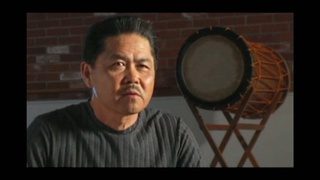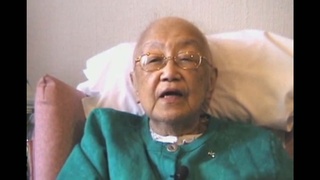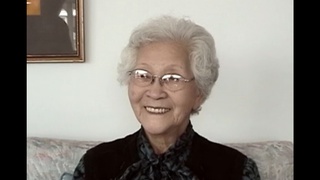Interviews
Yobiyose system in Canada
Yobiyose, is, literally means "to call over," yobiyoseru, "call over." And there was this system which you could call over somebody from Japan to work as a domestic or a store clerk or a farmhand or a logging camp hand, and so forth. And you had to apply to the Japanese consulate in Japan to call over this person. Now, the requirements were quite strict. You had to be an established farmer or established logger or established sawmill owner. You can't be anybody, you can't call over, you know, if I didn't have a job, or if I was working on a, working at a logging camp, I can't call over a yobiyose. It has to be somebody that's already established.
Date: October 29, 2005
Location: Toronto, Canada
Interviewer: Norm Ibuki
Contributed by: Sedai, the Japanese Canadian Legacy Project, Japanese Canadian Cultural Center












